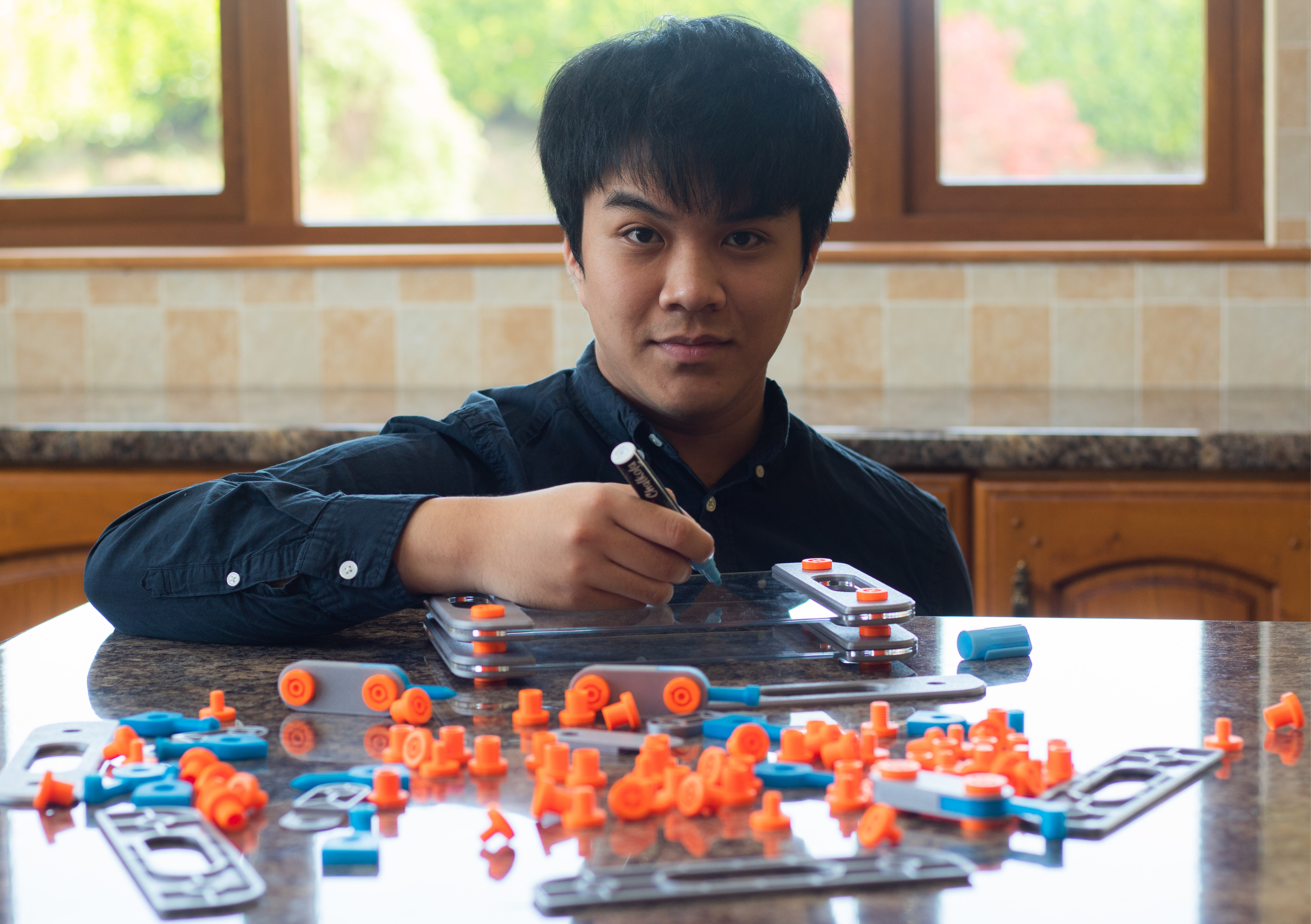What it does
Enso is a 3D printed toolkit that engages children in guided play lessons & trains educators to be play facilitators. Designed to be adaptable to the current primary curriculum while fitting into the educational play policies that are being released globally.
Your inspiration
Internationally, young learners are not engaging in enough play in education and that’s 1.9 billion children. Endless reports and recommendations have acknowledged its importance in social, emotional and intellectual development. Globally, ministries of education have published policies that promote play but there are no implementation approaches, leaving the educators also not being equipped with the training and support to facilitate it. Enso was designed to provide children and their educators with a fun and engaging method of learning/ teaching through play that can be adapted to different curriculum lessons and fit in those policies.
How it works
Enso engages young learners in guided play through design thinking tasks by integrating ideation, prototyping and testing/storytelling activities to each lesson which will enhance their 21st-century skill set. This gives Enso the freedom to adapt to various subject topics. With reference to the "How to use it." image, a sample of an English lesson plan will be discussed. The facilitator lets the children read the poem, the Marrog and then downloads the resources from the online platform. They’re placed in groups and the children collaborate on drawing the poem’s character, using adjectives and nouns mentioned. Stacking the canvases one by one together, they’ve now formed their idea, gaining social and collaborative skills. Moving onto prototyping their idea to life, building on their cognitive skills. They create the fingers of the alien that they wear and end the lesson by telling a story of their journey and creates masks with the canvas to act out the poem.
Design process
During the initial stages of development, the types of play, target age group, design space and reasoning behind successful education systems were defined. Interviews were conducted with education professionals regarding playful pedagogy. Over two months of collecting research, theoretical approaches for play design, and interacting with experts it was discovered there is a global call for play in education but without any implementation approaches. Concept generation began, followed with co-creation workshops that determined valuable play tasks through card sorting. The initial idea was low-fi prototyped and user-tested to provide insights on its' viability. Three progressive iterations were developed and user-tested with lesson plans which physical affordances were gathered and altered. This reinforced the final design of Enso, that includes fasteners, tools and a clear canvas, which underwent 3D printing optimization tests to eliminate overhangs and gained ideal print settings. PLA, PETG and Acrylic were used to produce Enso and are the intended final material & manufacturing method. It requires no adhesives and is assembled with the kit's fasteners. Enso was lastly user-tested through seven standardised curriculum modules in which learning goals and skills were achieved.
How it is different
Other educational toy manufacturers provide defined subject kits, Enso gives its' users the freedom to integrate it into any subject, while fitting into the play policies that are being released. Enso gives educators access to an online platform, collecting a community of professionals that share their own lesson plans & experiences. This aspect will encourage interaction which results in the constant community development/ updates of the design & resources which will feedback into the eco-system and evolve Enso further. It will be produced through a 3D printing farm as it can be rapidly manufactured at low costs but be highly scalable as these farms can be placed in each country that Enso will distribute to. Enso will cost €10.10 to produce and sell for €33.70. Downloadable 3D object files will also be available for €15 to allow schools to print their own updates or replacements and requires no adhesives, being assembled only with the toolkits' fasteners.
Future plans
Enso has undergone extensive research, expert co-creation sessions and iterative prototyping with user-testing to date. I plan to develop Enso from a thesis project to a start-up and minor development on the physical product will be required before it can be deemed market-ready. An online platform is in the works, which will allow the community to share their personal teaching resources & experiences which will feedback into the product, further evolving Enso. I hope Enso will be an essential product that will bring a more fulfilling and fun learning/ teaching environment for young learners and their educators in the coming future.
Awards
To date, Enso has received critical praise & has been presented two awards from TU Dublin, one being "Best Design Project 2020". Enso has been showcased as a "Top 10 National Finalist" in Enterprise Ireland's Student Entrepreneur Awards 2020, a competition dedicated to turning enterprise ideas into a business reality.



Connect